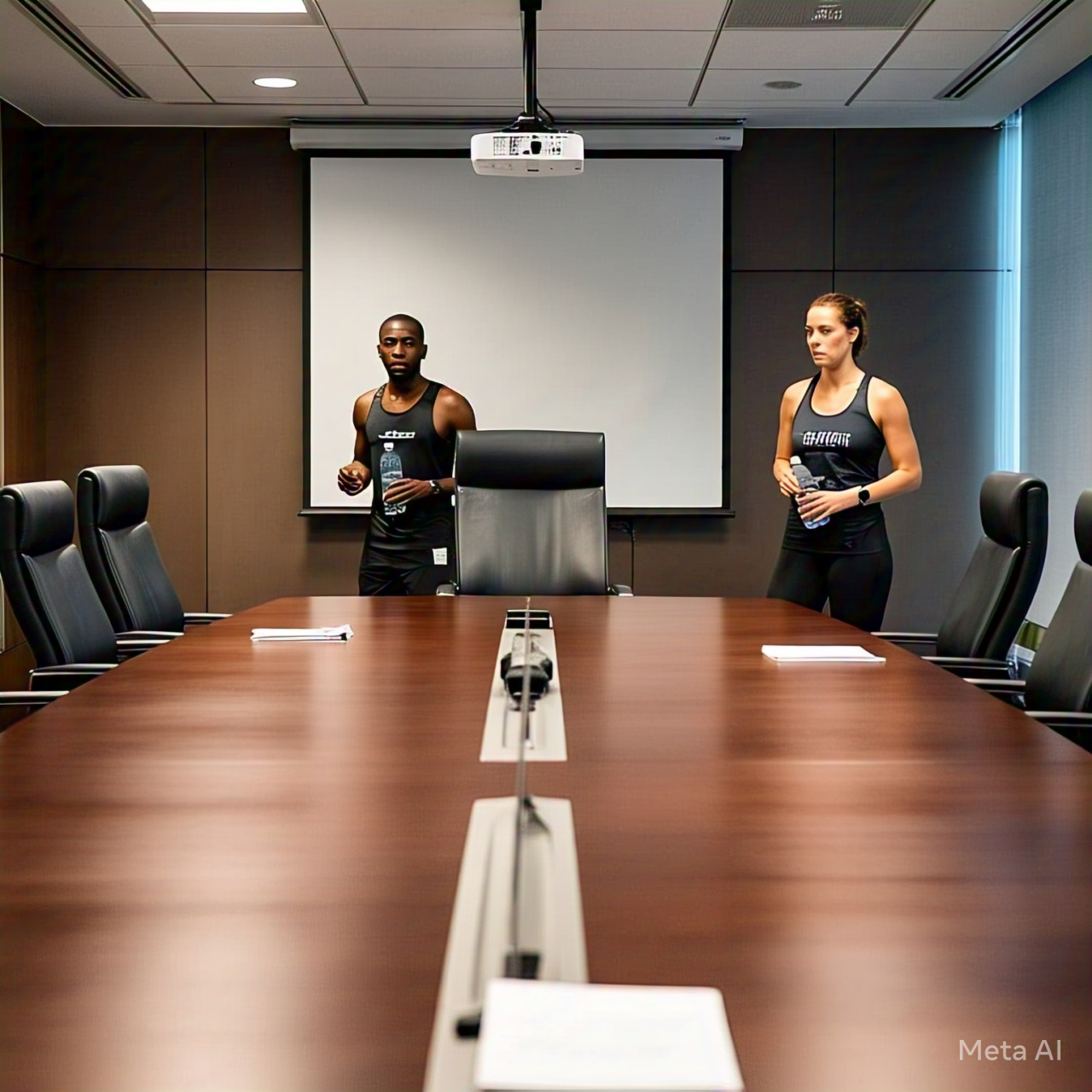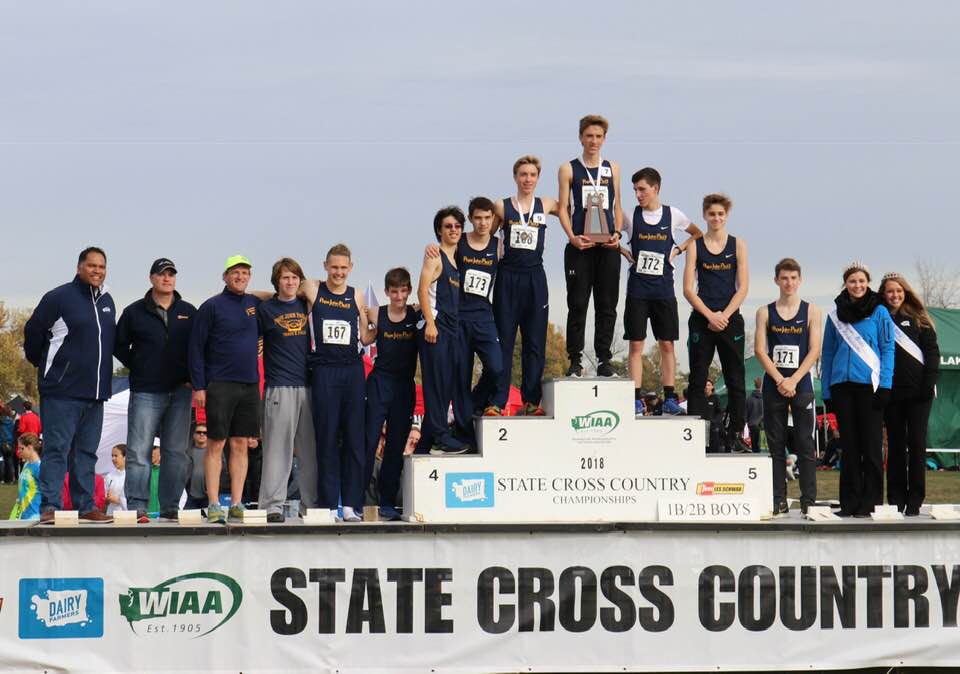Transforming
Running Lessons into Career Success
"We cannot always build the future for our youth, but we
can build our youth for the future." – Franklin D.
Roosevelt

Well-structured running programs impart character traits that are transferable to various careers, ranging from the boardroom to the field of medicine.
Stepping away from competitive running after enjoying success in the Original Ultimate Runner Competition felt bittersweet.
The transition from being a competitive runner to focusing on my career marked the beginning a new and exciting chapter in life. However, it also required me to cope with the grief of losing something that had been an integral part of my life since elementary school.
I discovered that running 100 miles a week was more manageable when pursuing a competitive goal than just running 25-30 miles weekly for fitness without a clear motivation. Like many other competitive athletes, I struggled to leave the sport I loved and struggled with "What’s next?" in life. For more information about transitioning from sports to a career, read my article, “Embracing New Horizons: Life After Sports”.
Although my work schedule made it impractical to coach high school or college athletes, I still found joy in coaching and supporting aspiring Olympic Trials athletes who required less guidance. This opportunity allowed me to stay connected to the sport and helped fill some of the void left by my retirement from racing.
The transition from running to career also ignited a renewed passion for leadership in my workplace, mainly due to a new work activity. After prayer about what’s next in life, I believe my prayer was answered with a fresh vision for my future. Reflecting on my journey, I can also see how my running career equipped me to face incredible challenges to come.
The Organization I Worked for Was in a Heap of Trouble
The organization I joined faced significant financial and management challenges due to the merging of multiple business and technology systems containing millions of records from different organizations.
Due to questionable oversight and external consultant implementation practices, substantial sums of time and money were lost on extremely flawed technology and business projects.
I was not involved in the failed projects and had little knowledge of the issues until the organization’s leader approached me one day. To this person's credit, she acknowledged and took responsibility for the failures even though the vast majority of the problems were inherited when she took the job.
It's rare to see such accountability today, so I respect how this was handled, after when reflecting on the situation years later.
My employer’s leader recognized my work ethic for some reason, commitment to excellence, and positive attitude and asked me to lead a project to help fix the massive problems in the agency.
While I lacked experience in organizational turnarounds (I had none), I felt compelled to contribute and make a difference. The motivation to protect not just the organization but also the livelihoods of my colleagues reinvigorated my sense of purpose.
My philosophy was, “Jump, and God’s net will appear.” I gulped because the job felt like jumping off a cliff, but I said to myself, “Let’s go”, similar to trying a brand-new event in running.
Competitive Running Prepared me to Lead
The experience of stepping outside my comfort zone and participating into various events in my running career, while running in front of many people who could witness my mistakes, was beginning to pay off in my career. I was taking a similar leap of faith now in the first major project of my career for the world to see.
There is no hiding your performance on the field. And as the saying goes, "the clock never lies." Your true performance is out there for the whole world to see.
You can’t hide when you run in front of teammates, parents, and a crowd in races. You must learn to do your best and correct your mistakes in front of everyone. No politics are involved, there is no press to spin things, so you either get it done or you don’t.
Self-deception has no place or home in our sport.
Because of the importance of the project I took on, there was massive oversight on the project from oversight agencies and the state legislature. Any mistakes I made would have a lot of visibility. There was no way to hide or bury mistakes just like my running days when your performance was out in the open for everyone to see. I was fine with that because I viewed mistakes as gentle taps on the shoulder that you don't know everything yet.
Running had taught me to learn from my mistakes without beating myself up. If I made a mistake in the project, I was determined to own it, learn from it right away, and make mid-course corrections just like a running career taught me.
Project Phoenix Begins
I oversaw higher-level Managers in the organization, working within a complex matrix management structure within the organization turnaround project. The agency's leader emphasized that Project Phoenix was about rising from the ashes, a fitting metaphor inspired by the mythical bird symbolizing resilience and renewal.
Over the next year, I led efforts in strategic planning and improvements to financial systems. I worked with a team to assess the viability of millions of lines of computer code that needed updating.
We also focused on updating key agency processes required to merge multiple business and systems, all under the guidance of a consultant who taught me more in one year than I had learned in four years of college. Galen Schmidtke was an excellent, practical, hands-on teacher who to this day I am thankful for.
Galen was nearing the end of his career and took me under his wing, sharing all his knowledge with me. I was eager to learn and absorbed everything he said. I owe a lot to Galen, who I haven't seen since 1989 and who has likely passed away by now.
Galen was the best business, organization analysis, process improvement, and technology coach I ever had. I had learned to listen closely to good coaches in my running career, and felt I was very coachable when people knew what they were doing.
He had that coaching instinct that required people to give their best, much like my running coaches, so we connected. Other people thought he was harsh, but because of my background, I felt as though he was just calling out people to reach their potential.
Galen would challenge people who said, “No, it can’t be done.” Somehow, when he challenged their "I can't" attitude, they got it done.
Completing the Project
Completing 28 sub-projects on time and under budget was a rewarding experience. We salvaged the agency from potential closure or merger and ensured its functions weren't scattered across other organizations.
During the project, my college coach, Marshall Clark, words rang in my ears: “Self-Sacrifice and Self-Discipline are more than mere words to a distance runner; they are a way of life in distance running or any other worthwhile goal.”
Coach Clark and my other coaches taught me numerous leadership skills as a captain or in various other leadership roles on the teams I participated in over the years. They instilled a deep "never quit" attitude that impacted my heart, soul, and mind.
Therefore, failure was not an option in Project Phoenix. We did whatever it took to complete this project, including some long hours, personal sacrifice, and the discipline developed in youth.
Going the extra mile was the standard in the running world that I was brought up in from a young age.
There was a lot at stake for people, both personally and professionally in Project Phoenix. Like my teammates back in the day, I had no intention of letting my teammates down in my role as the leader of Project Phoenix.
Celebrating Crossing the Finish Line
During my project closing and celebration speech, I highlighted that our project resembled a relay race. Each team member had a specific role to play, and the handoffs between us needed to be smooth.
We needed to function as a unified team with a common objective: to cross the finish line in triumph together. And we succeeded.
Every individual involved in the Project Phoenix initiative played a vital role in our achievement, contributing in various ways as we reached the finish line side by side.
Somehow, my project closeout speech got a standing ovation, a memory I still hold dear. The metaphor of a relay race struck a positive chord with project members who labored for months to save the agency. It was a team effort all the way.
After I presented the project closeout report to senators and representatives from both parties in the state legislature, I was grateful to receive handwritten notes from both sides congratulating us on our success.
Nearly 40 years later, with over $70 billion in assets, the organization remains viable for hundreds of thousands of members.
I attribute a significant portion of my initial leadership success in Project Phoenix to the invaluable lessons derived from running: that through hard work, breaking barriers, recovering from setbacks, demonstrating resilience by never giving up, we can challenge and emerge stronger than ever.
I also credit Galen with understanding how to coach people to work excellence. He was tough yet fair and genuinely cared about achieving excellence, and his coaching model was beneficial to observe in the workplace, not just on the racecourse.
Life Reflections
All the lessons I accumulated over the years from running came together during my first significant leadership experience in the workplace. The countless mornings spent running in the cold, overcoming failure by getting back up when I fell, and pushing through challenging times on the track and cross-country course brought rewards beyond athletics. The grit, perseverance, and determination developed during my running days were now shaping my professional journey in profound ways.
I also think about Timothy’s story in the Bible and how character traits, skills, and values developed in youth carry over to our adult lives. St. Paul’s letter to Timothy stresses the importance of discipline, leadership, and faith, each of which is learned at a young age if done correctly.
All of the character traits we developed in competitive running can apply in our professional lives regardless of the field from Ministry to Medicine.
In the remaining of Faith and Miles Devotions and Reflections for the Runner's Soul series, I will emphasize how the lessons learned from competitive running during my youth have influenced various aspects of my life in more detail.
Questions for Prayer and Reflection
1. What one trait stands out in this chapter that you can use in your career?
2. What else have you learned in your running career that can help you in your vocation that is not in this post?
3. How can you instill the character traits identified in this post in your organization if you are a leader?
4. What is one trait you can intentionally teach or coach others in that will benefit your organization?
If you missed the introduction to my Faith and Miles: Devotions and Reflections for the Runners Series check it out Faith and Miles: Devotions for a Runner's Soul.

The traits of a championship running team are very similar to the traits of championship teams in the workplace.